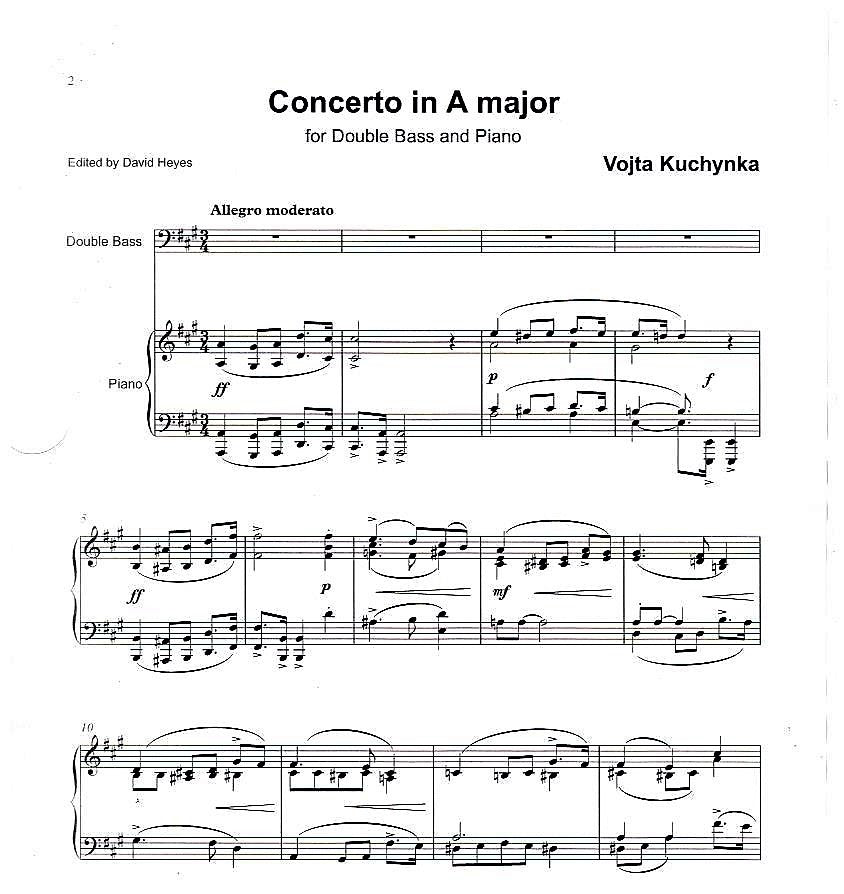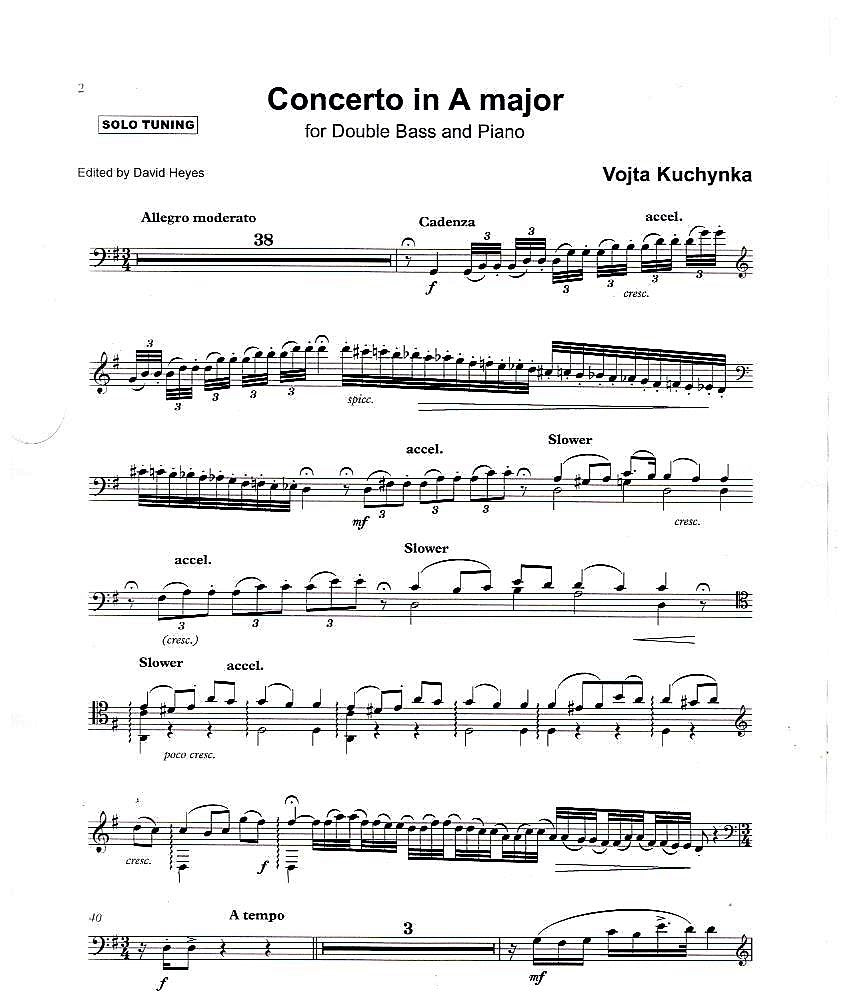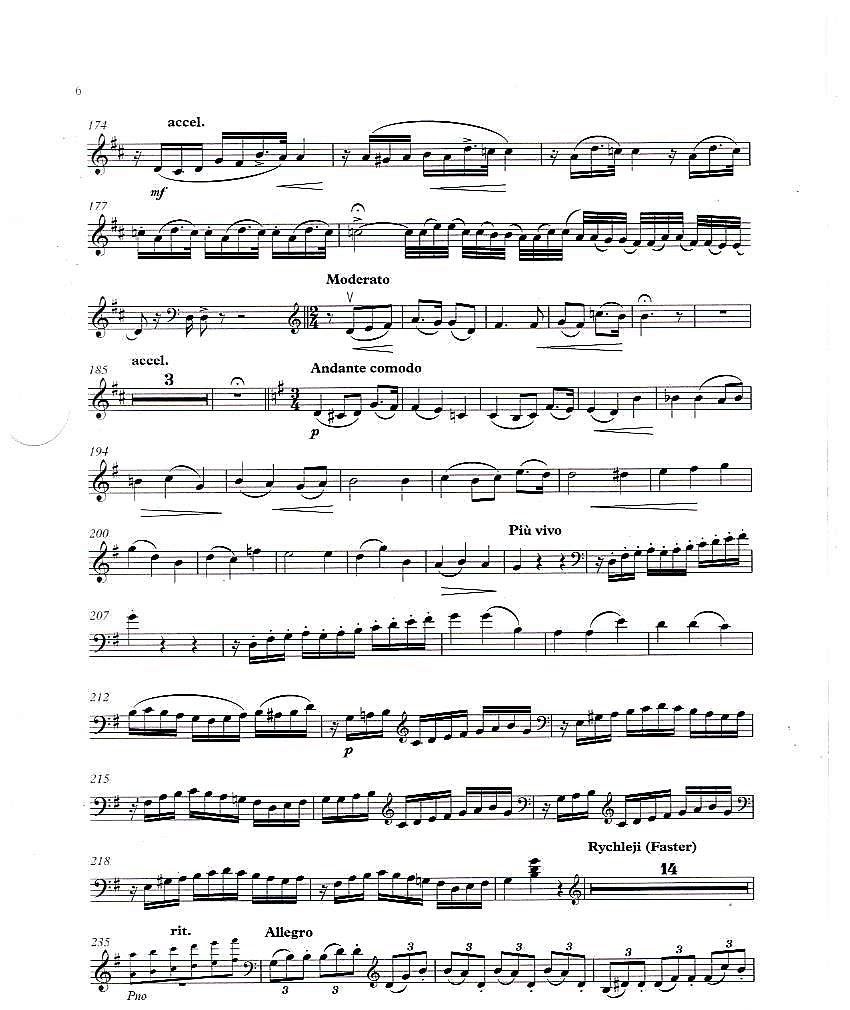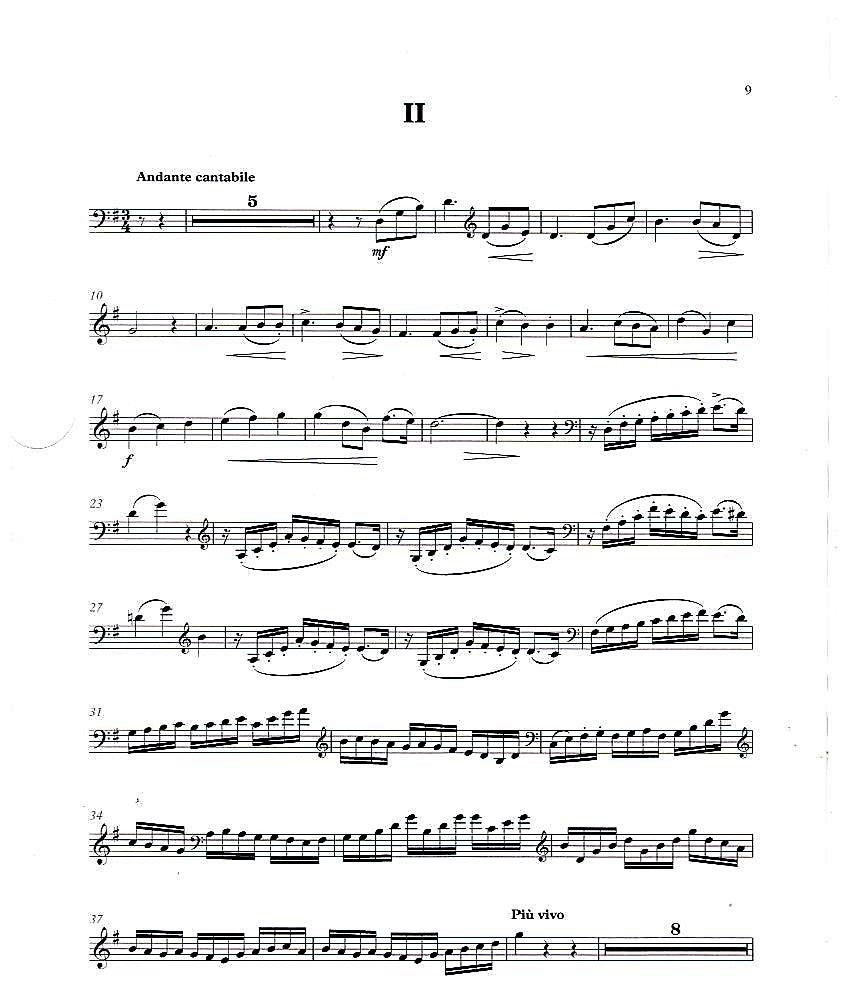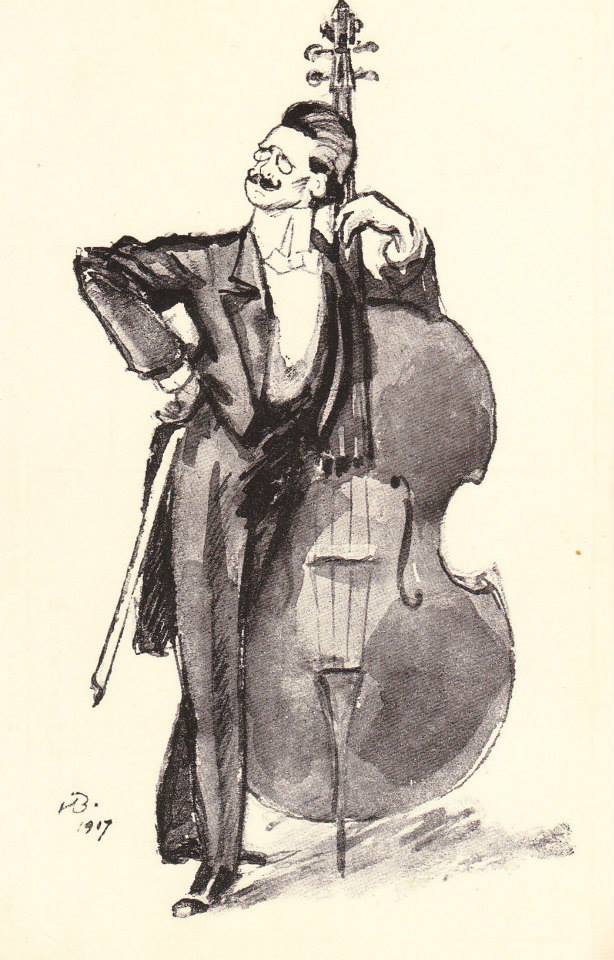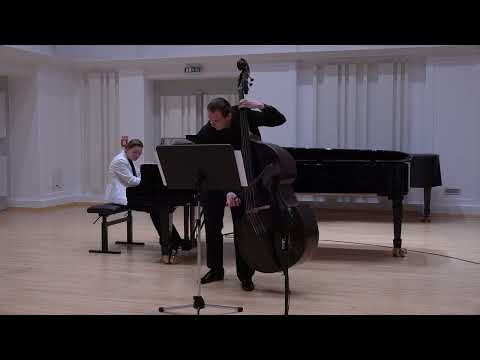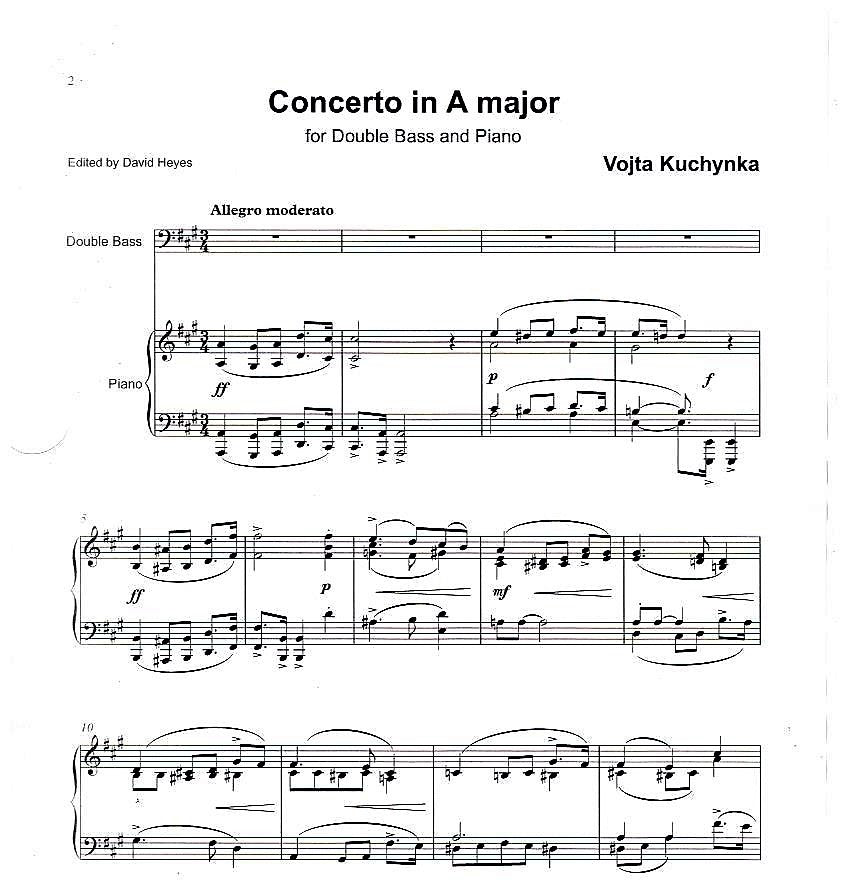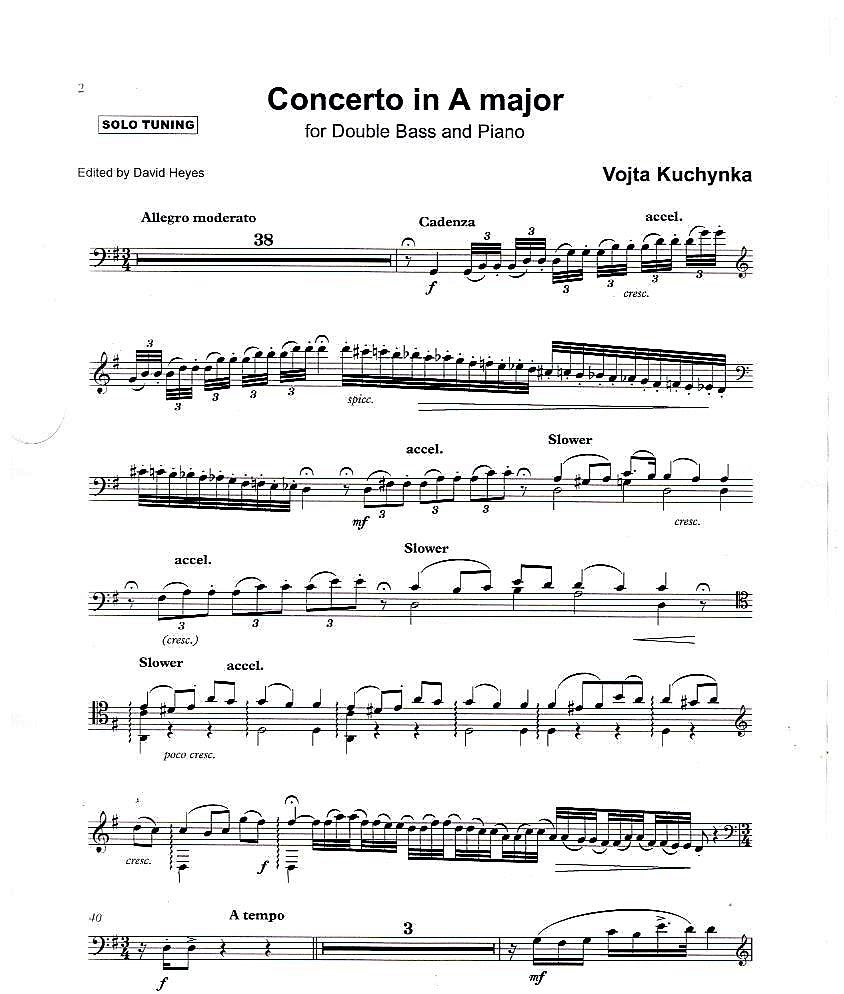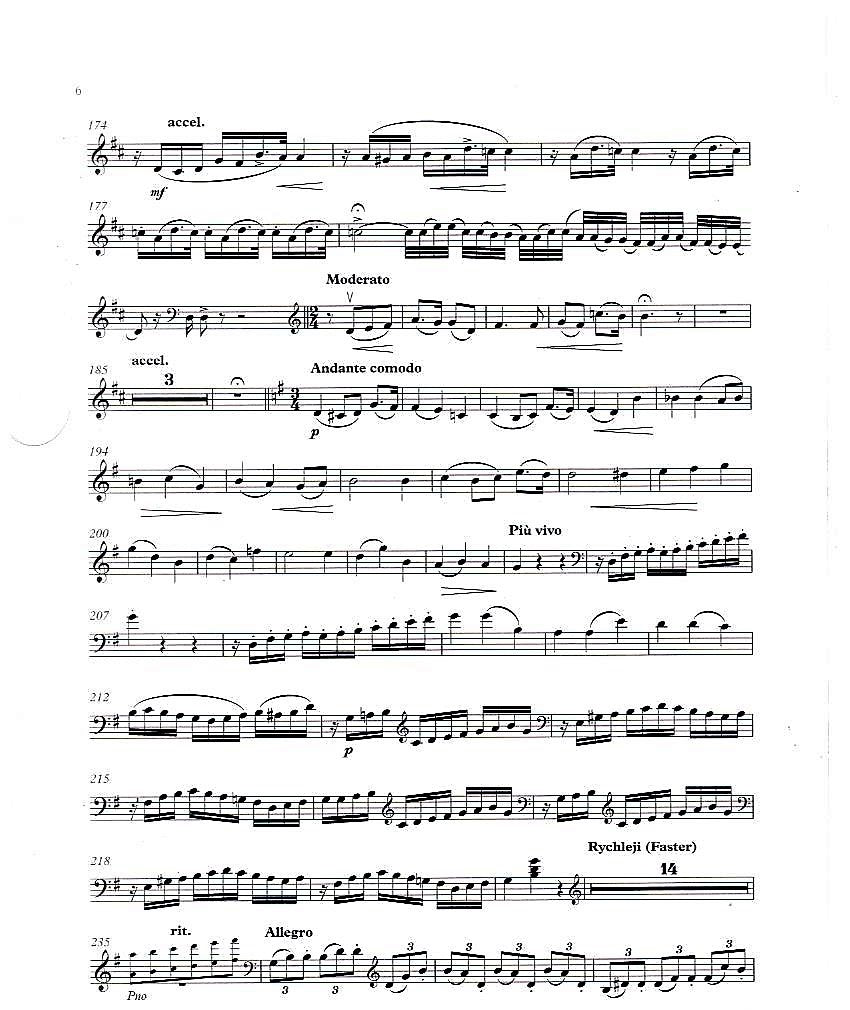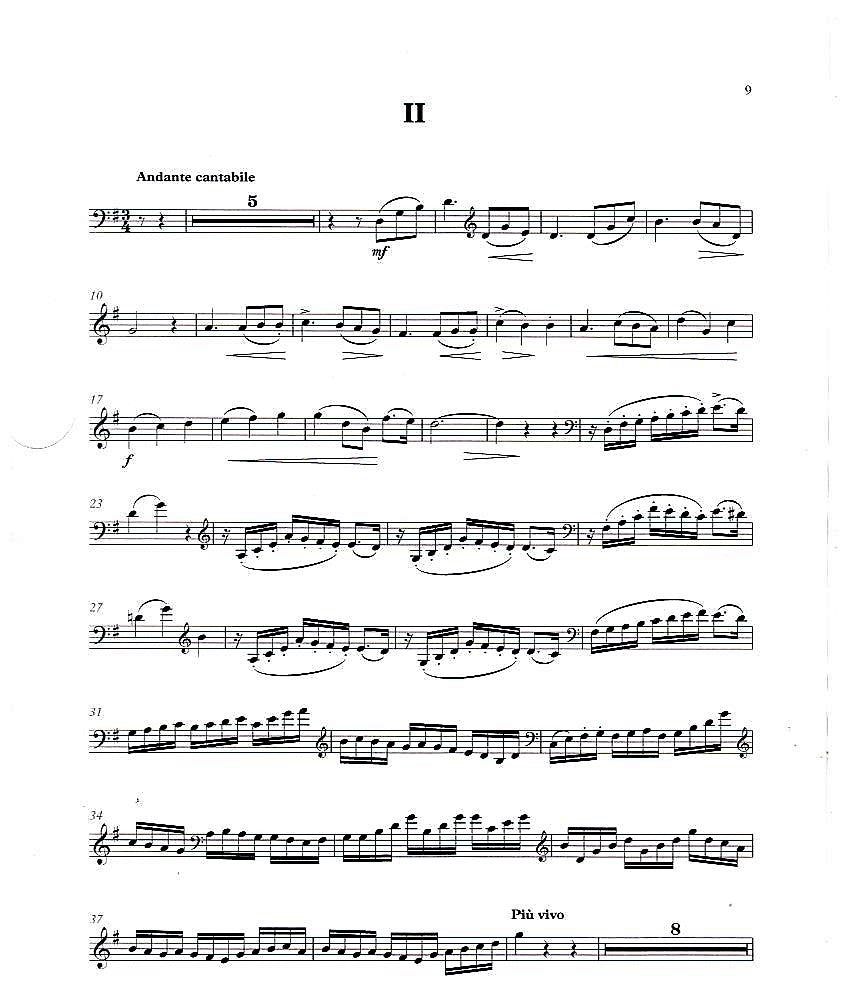David Heyes
Kuchynka: Concerto in A major for double bass & piano
Kuchynka: Concerto in A major for double bass & piano
Couldn't load pickup availability
About the Concerto
Kuchynka's Concerto in A major is in three contrasting movements beginning with a lively and virtuosic Allegro moderato which is full of virtuosic fireworks and opportunities for the soloist to demonstrate a virtuoso technique throughout the solo register. The slow movement (Andante cantabile) brims with Czech lyricism, the shortest of the three movements, exploring the sonorous and cantabile qualities of the double bass, contrasting a final movement (Rondo) in 6/8 time which is fast and exciting, bringing the work to a triumphal and successful conclusion.
Kuchynka was obviously a very fine soloist, writing for the entire solo range of the double bass, and the concerto contrasts Czech styles with the musical language of Central Europe in the late-19th and early 20th-century. His technical knowledge of the double bass ensures this is music which offers musical and technical challenges in equal measure.
“About thirty years ago I obtained a copy of the manuscript of Concerto in A major for double bass and piano by Vojta Kuchynka (1871-1942), although I have no recollection where it came from. In the 1990s I performed the slow movement at a lunchtime concert in Doncaster, otherwise it has sat in my Kuchynka file until the end of last year. 2021 was the 150th anniversary of Kuchynka's birth and I decided it was time to produce a first edition of the concerto alongside other works of his which have remained unpublished. Two salon pieces for double bass and piano by Kuchynka were Recital Music's first publications 36 years ago and over the years we have added a few other works to keep his name known in the 21st-century.
When I realised that the Concerto was completed on 22 December 1921, exactly one hundred years ago, it was too good an opportunity to miss and I set to work typesetting this mammoth three movement work. I remember František Pošta commenting that it was unlikely that the composer had created an orchestration for the concerto and the version with piano is the only one available. There are 39 pages of manuscript which, surprisingly translated to 39 typeset pages, and overall it was fairly easy to read, although there are numerous passages which are crossed out or amended, and presume this copy was used for performances by the composer.
Although this has taken many hours of typesetting and proofreading, alongside making numerous editorial decisions, it has been well worth the effort. Kuchynka's music has been part of my musical life, as a performer and publisher, for the past 36 years and there are many more pieces to publish from 2021 onwards.” [David Heyes / October 2022]
About the Composer
Vojtěch [Vojta] Kuchynka was born in the Czech town of Nové Strašecí on 7 May 1871. He studied double bass at the Prague Conservatoire with Vendelin Sládek (1851-1901) from 1885-91, and composition with Antonín Dvořák from 1891-93. In 1895 he was appointed 1st Double Bass and Soloist in the Orchestra of the Czechoslovak Folk Art Exhibition Orchestra, also conducted a number of choirs in the Czech capital and for a short time was the piano teacher of the family of Count Fürstenberg. Between 1899 and 1933 Kuchynka played in the National Theatre Orchestra in Prague and from time to time worked with the famous Czech Quartet.
He gave solo recitals until the day of his retirement when he celebrated his 600th recital, and was known as 'the Kubelík of the Double Bass', after the leading Czech violinist of the day Jan Kubelík (1880-1940). He was praised for his perfect technique, impressive harmonic work, interpretation and tasteful transcriptions of classical works. Most of his recitals were in Bohemia or Moravia and one concert in Prague, reviewed in The Strad by Miss Windust, stated "Alongside the brilliant performances of František Ondříček and Karel Hoffmann it was the admirable virtuosity of Vojta Kuchynka that made the deepest impression on me." He made the first Czech double bass recording for Parlophon, and Prague Radio broadcast recitals of his music to celebrate his 65th and 70th birthdays.

